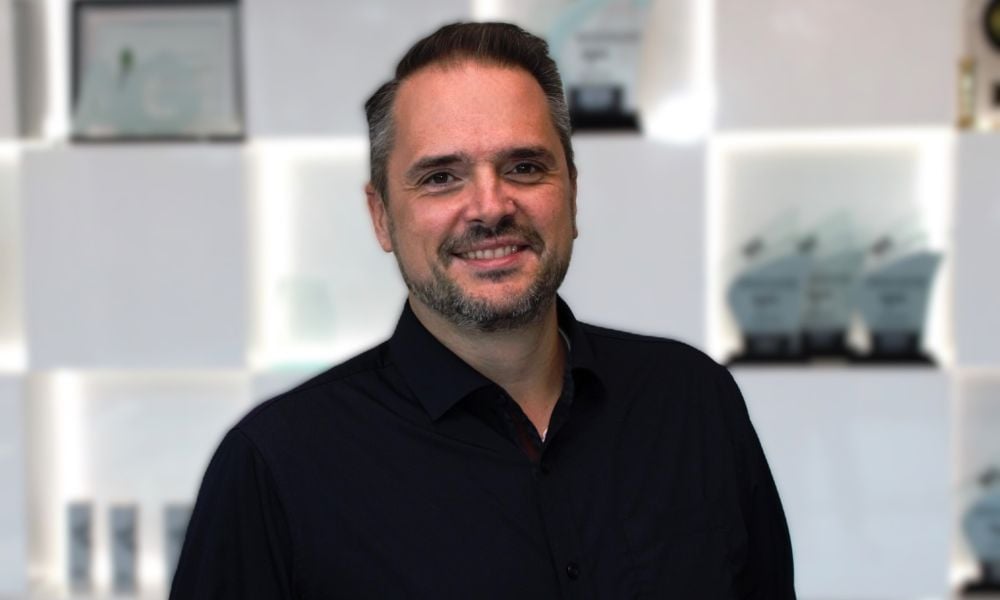
Badurina outlines the infrastructure and policy issues facing the car maker

With a company motto of “new thinking, new possibilities,” it’s little wonder that Hyundai Canada is at the forefront of automotive innovation. And steering that all-important legal arm of the iconic manufacturer is general counsel David Badurina. Speaking to Lexpert, Badurina explains that it’s Hyundai’s unique business model, coupled with ground-breaking new tech, is propelling it into the future.
“There are many important benefits and advantages to the dealer business model,” he adds, noting that the concept of the "traditional" dealership is outdated. “Business at a dealership is much different now than it was even five years ago or ten years ago.”
Badurina explains that dealerships are deeply embedded in their communities, often adopting local names and acting as ambassadors for the brand. This local presence ensures personalized customer service, as dealers are familiar with their customers' needs and preferences.
“They know their customers,” adds Badurina. “They know what they want, they know how they want to be treated. They know how they can satisfy those customers, and at Hyundai, we're really trying to leverage that to the very fullest.”
This hyper-personalized approach certainly seems to be working – especially where electric vehicles (EVs) are concerned. Hyundai Canada's inventory is rebounding after a vehicle shortage last year, while demand remains strong for its products. This allowed Hyundai to almost double its overall EV sales in the first half of 2024, with a 78 percent increase YTD – 11,237 units in 2024 versus 6,299 in 2023.
A key part of this success? Hyundai Canada bolstering its brand through consistent and clearly defined guidelines.
“We establish the vision for the brand, ensure buy-in by the dealer on processes, how customers should be dealt with, and we establish very high brand standards to address those needs,” says Badurina. The dealership model's "secret weapon" lies in its ability to foster real human relationships, which are crucial for customers making significant purchases like vehicles.
Discussing Hyundai's luxury brand, Genesis, Badurina highlights its unique direct-to-customer model facilitated by dealers, or "distributors," as they are termed. This model balances efficiency, uniformity, and high-quality customer service while leveraging the regional expertise of local distributors.
“We’re getting the best of both worlds,” Badurina says. “Efficiency, uniformity in the sales transaction and customer interfaces, and the distributors are actually leveraging that sort of standardization as well as the quality of customer service experience.”
The shift towards EVs has also posed numerous regulatory challenges, particularly in infrastructure and environmental regulations. Hyundai, a leader in EV sales in Canada, is actively addressing these challenges.
“We’ve quickly become a mass market leader in electric vehicles,” adds Badurina. “In fact, right now, we’re number two in EV sales in Canada, only second behind Tesla.”
However, he is critical of the current government zero-emission vehicle (ZEV) mandates, which he believes have not been developed based on objective customer demand and technical realities.
Transitioning to EV production is also a monumental task, requiring significant changes in vehicle production facilities.
“It’s a huge undertaking to re-tool a factory from internal combustion engines to an EV factory,” he says. “Governments need to ensure that Canada has a robust charging infrastructure. You need to have charging available just like you have gas stations today.”
Hyundai is also proactively expanding the charging network through initiatives like IONNA, which aims to increase the number of superchargers in North America, and adopting the North American Charging Standard (NACS) to provide more flexibility for Hyundai EV customers. Addressing the specific challenge of charging in older neighbourhoods with limited driveways and on-street parking, Badurina stresses the importance of collaborative efforts with governments.
“We have discussions with government directly,” he says. Hyundai also participates in industry groups like the Global Automakers of Canada to present a unified voice in advocating for regulatory changes that support the transition to EVs.
In terms of adapting to digital transformation, Badurina highlights the significant advancements made during the COVID-19 pandemic.
“Prior to COVID, we were developing many systems that we rely on today,” he says. The "Click to Buy" platform allows customers to complete most of the purchasing process online, from getting a quote to e-signing documents. The seamless integration of this platform with dealer support ensures a smooth customer journey.
Badurina also says telematics and data management provide insights into vehicle usage and enhance customer experiences.
“For me, in the legal department, that presents some of the most risky areas from a legal and regulatory perspective,” he says, ultimately emphasizing the need for stringent privacy, data management, vendor accountability, and cybersecurity measures.